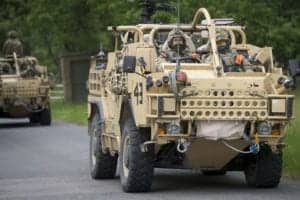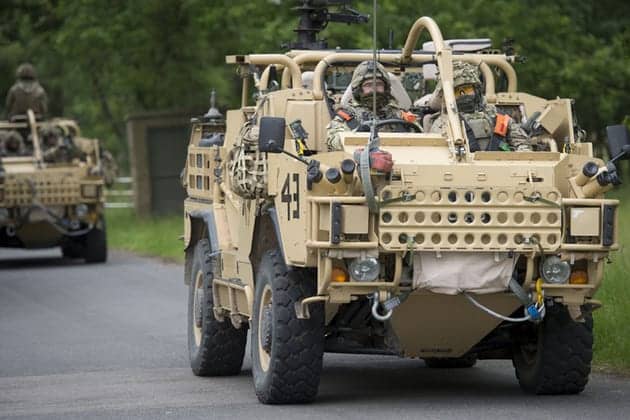University of Southampton researchers, with assistance from the UK’s Ministry of Defence, have conducted the first study to identify the hearing requirements of British soldiers fighting on the frontline.
The study, published in the May 7 edition of Noise and Health, provides insight into the frontline experiences of British infantry personnel, and identifies 17 “auditory tasks,” such as “hearing grid references” and “locating enemy movement in maize fields,” carried out on operational duties abroad.
By identifying these tasks, researchers reportedly will be able to develop a new auditory fitness for duty test to determine the impact of hearing loss among infantry personnel and ensure that personnel are given appropriate training and equipment before deployment.
“This new information allows us to better understand the challenges faced by our frontline soldiers,” says co-author Zoë Bevis of Southampton University’s Institute of Sound and Vibration Research (ISVR). “As well as identifying the auditory tasks, we also came across other interesting opinions during the study. Soldiers felt that they couldn’t hear as well when they were performing several tasks at once, for instance listening to a radio while looking out for a signal, or when they are in a very stressful environment, such as enemy contact in combat.
“Those comments emphasize how important it is for the infantry to hear important signals whilst maintaining their situational awareness,” continues Bevis. “Participants felt their hearing played a fundamental part in their safety and their ability to carry out the job expected of them.”
The study consisted of 16 focus groups involving 80 British army personnel. The focus groups included open-ended questions about the auditory tasks performed on operational duty; these tasks were divided into subthemes of sound detection, speech communication, and sound localization.
Analysis of 1,177 individual comments resulted in two main themes: 1) The auditory tasks personnel were expected to perform, and 2) situations where personnel felt their hearing ability were reduced. Researchers also outlined attitudes to hearing health, noise exposure, and hearing protection.
“We know that infantry personnel are at increased risk of hearing impairment due to the nature of their job,” adds Bevis. “With this new information, we can develop methods to assess whether hearing impaired soldiers can perform the frontline auditory tasks necessary for their safety and effectiveness.”
The opinions and attitudes documented in this study are said to help researchers gain a new insight into the challenging environments faced by infantry personnel fighting on the frontline. It can be used to aid the continuing development of communication equipment, hearing protection, training programs, and measures of auditory fitness, say the authors.
The study also is said to provide a model for job analysis that is transferable to many fields of work-related fitness for duty— for example respiratory fitness standards for policemen or eyesight checks for air traffic controllers.
The research was funded, in full, by the UK’s Ministry of Defence.
Source: University of Southampton




